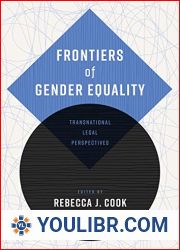
BOOKS - Globalizing Morocco: Transnational Activism and the Postcolonial State

Globalizing Morocco: Transnational Activism and the Postcolonial State
Author: David Stenner
Year: May 14, 2019
Format: PDF
File size: PDF 5.6 MB
Language: English

Year: May 14, 2019
Format: PDF
File size: PDF 5.6 MB
Language: English

Globalizing Morocco: Transnational Activism and the Postcolonial State The end of World War II marked a significant turning point in global history, as it heralded the beginning of a new global order. Decolonization swept across the world, and the United Nations, founded in 1945, became an instrument of freedom for the world's colonized people. North Africa, in particular, became a contested region, with events there reverberating around the world. In Morocco, the emerging nationalist movement developed social networks that spanned three continents and engaged supporters from CIA agents, British journalists, and Asian diplomats to a Coca-Cola manager and a former First Lady. Globalizing Morocco tells the story of how these networks helped the nationalists achieve independence and illustrates how they contributed to the formation of international relations during the early Cold War. Looking at post-1945 world politics from the Moroccan vantage point, we can see fissures in the global order that allowed the peoples of Africa and Asia to influence a hierarchical system whose main purpose had been to keep them at the bottom.
Глобализация Марокко: транснациональный активизм и постколониальное состояние Конец Второй мировой войны ознаменовал собой значительный поворотный момент в мировой истории, поскольку он ознаменовал начало нового глобального порядка. Деколонизация прокатилась по всему миру, и Организация Объединенных Наций, основанная в 1945 году, стала инструментом свободы для колонизированного мира. Северная Африка, в частности, стала спорным регионом, события в котором распространяются по всему миру. В Марокко зарождающееся националистическое движение развило социальные сети, которые охватывали три континента и вовлекали сторонников из числа агентов ЦРУ, британских журналистов и азиатских дипломатов в менеджера Coca-Cola и бывшую первую леди. Глобализация Марокко рассказывает историю о том, как эти сети помогли националистам достичь независимости, и иллюстрирует, как они способствовали формированию международных отношений во время ранней холодной войны. мы можем видеть трещины в глобальном порядке, который позволил народам Африки и Азии влиять на иерархическую систему, главная цель которой состояла в том, чтобы держать их на дне.
Mondialisation du Maroc : activisme transnational et État post-colonial La fin de la Seconde Guerre mondiale a marqué un tournant important dans l'histoire mondiale, car elle a marqué le début d'un nouvel ordre mondial. La décolonisation s'est répandue dans le monde entier et l'ONU, fondée en 1945, est devenue un instrument de liberté pour le monde colonisé. L'Afrique du Nord, en particulier, est devenue une région controversée où les événements se propagent dans le monde entier. Au Maroc, le mouvement nationaliste naissant a développé des réseaux sociaux qui couvrent les trois continents et impliquent des partisans parmi les agents de la CIA, les journalistes britanniques et les diplomates asiatiques dans le gestionnaire de Coca-Cola et l'ancienne première dame. La mondialisation du Maroc raconte comment ces réseaux ont aidé les nationalistes à accéder à l'indépendance et illustre comment ils ont contribué à façonner les relations internationales pendant la première guerre froide. nous pouvons voir des fissures dans l'ordre mondial qui ont permis aux peuples d'Afrique et d'Asie d'influencer un système hiérarchique dont l'objectif principal était de les maintenir au fond.
Globalización Marruecos: activismo transnacional y estado poscolonial fin de la Segunda Guerra Mundial marcó un punto de inflexión significativo en la historia mundial, ya que marcó el inicio de un nuevo orden mundial. La descolonización ha dado la vuelta al mundo y las Naciones Unidas, fundadas en 1945, se han convertido en un instrumento de libertad para el mundo colonizado. norte de África, en particular, se ha convertido en una región en disputa, con eventos que se extienden por todo el mundo. En Marruecos, el naciente movimiento nacionalista desarrolló redes sociales que abarcaron tres continentes e involucraron a simpatizantes de entre los agentes de la CIA, periodistas británicos y diplomáticos asiáticos en la gestora Coca-Cola y la ex primera dama. La globalización de Marruecos cuenta la historia de cómo estas redes ayudaron a los nacionalistas a alcanzar la independencia e ilustra cómo contribuyeron a la formación de relaciones internacionales durante la temprana Guerra Fría. podemos ver grietas en un orden global que permitió a los pueblos de África y Asia influir en un sistema jerárquico cuyo objetivo principal era mantenerlos en el fondo.
Globalização do Marrocos: ativismo transnacional e pós-colonial O fim da Segunda Guerra Mundial marcou um grande ponto de viragem na história mundial, porque marcou o início de uma nova ordem global. A descolonização se espalhou pelo mundo, e as Nações Unidas, fundadas em 1945, tornaram-se um instrumento de liberdade para o mundo colonizado. O norte da África tornou-se, em particular, uma região controversa onde os acontecimentos se espalham pelo mundo. Em Marrocos, um movimento nacionalista incipiente desenvolveu redes sociais que envolveram três continentes e envolveram apoiantes da CIA, jornalistas britânicos e diplomatas asiáticos como gerente da Coca-Cola e ex-primeira-dama. A globalização de Marrocos conta a história de como essas redes ajudaram os nacionalistas a alcançar a independência e ilustra como elas contribuíram para a formação das relações internacionais durante a Guerra Fria inicial. podemos ver rachaduras em ordem global que permitiram que os povos da África e da Ásia influenciassem o sistema hierárquico, cujo principal objetivo era mantê-las ao fundo.
Globalizzazione del Marocco: attivismo transnazionale e post-coloniale La fine della seconda guerra mondiale ha segnato un importante punto di svolta nella storia mondiale, perché segna l'inizio di un nuovo ordine globale. La decolonizzazione ha fatto il giro del mondo e le Nazioni Unite, fondate nel 1945, sono diventate uno strumento di libertà per il mondo colonizzato. Il Nord Africa, in particolare, è diventato una regione controversa in cui gli eventi si stanno diffondendo in tutto il mondo. In Marocco, il nascente movimento nazionalista ha sviluppato dei social media che hanno coinvolto tre continenti e coinvolto sostenitori della CIA, giornalisti britannici e diplomatici asiatici nel gestore della Coca-Cola e nell'ex first lady. La globalizzazione del Marocco racconta la storia di come queste reti abbiano aiutato i nazionalisti a raggiungere l'indipendenza e illustra come essi abbiano contribuito alla creazione di relazioni internazionali durante la prima guerra fredda. possiamo vedere le crepe in ordine globale che hanno permesso alle popolazioni africane e asiatiche di influenzare il sistema gerarchico, il cui obiettivo principale era tenerle sul fondo.
Globalisierung Marokko: Transnationaler Aktivismus und postkolonialer Zustand Das Ende des Zweiten Weltkriegs markierte einen bedeutenden Wendepunkt in der Weltgeschichte, denn es markierte den Beginn einer neuen globalen Ordnung. Die Entkolonialisierung fegte um die Welt, und die 1945 gegründeten Vereinten Nationen wurden zu einem Instrument der Freiheit für die kolonisierte Welt. Vor allem Nordafrika ist zu einer umstrittenen Region geworden, in der sich die Entwicklungen weltweit ausbreiten. In Marokko entwickelte die aufstrebende nationalistische Bewegung soziale Netzwerke, die sich über drei Kontinente erstreckten und Unterstützer aus CIA-Agenten, britischen Journalisten und asiatischen Diplomaten in den Coca-Cola-Manager und die ehemalige First Lady einbrachten. Die Globalisierung Marokkos erzählt die Geschichte, wie diese Netzwerke den Nationalisten zur Unabhängigkeit verhalfen und wie sie während des frühen Kalten Krieges zur Gestaltung der internationalen Beziehungen beitrugen. Wir sehen Risse in der globalen Ordnung, die es den Völkern Afrikas und Asiens ermöglichte, das hierarchische System zu beeinflussen, dessen Hauptziel es war, sie am Boden zu halten.
Globalizacja Maroka: aktywizm transnarodowy i państwo postkolonialne Koniec II wojny światowej był znaczącym punktem zwrotnym w historii świata, ponieważ oznaczał początek nowego globalnego porządku. Dekolonizacja przetoczyła się na całym świecie, a Organizacja Narodów Zjednoczonych, założona w 1945 roku, stała się narzędziem wolności dla skolonizowanego świata. W szczególności Afryka Północna stała się regionem spornym, a wydarzenia rozprzestrzeniły się na całym świecie. W Maroku nacjonalistyczny ruch rozwijał media społecznościowe, które obejmowały trzy kontynenty i angażowały zwolenników wśród agentów CIA, brytyjskich dziennikarzy i dyplomatów azjatyckich w menedżera Coca-Coli i byłej pierwszej damy. Globalizacja Maroka opowiada historię tego, jak sieci te pomogły nacjonalistom osiągnąć niepodległość i ilustruje, jak pomogły kształtować stosunki międzynarodowe podczas wczesnej zimnej wojny.
הגלובליזציה של מרוקו: האקטיביזם הטרנס-לאומי והמדינה הפוסט-קולוניאלית סוף מלחמת העולם השנייה סימנו נקודת מפנה משמעותית בהיסטוריה העולמית, כפי שהיא סימנה את תחילתו של סדר עולמי חדש. הדה-קולוניזציה פשטה ברחבי העולם, והאומות המאוחדות, שנוסדו ב-1945, הפכו לכלי של חופש עבור העולם הקולוניאלי. במיוחד צפון אפריקה הפכה לאזור שנוי במחלוקת, עם אירועים המתפשטים ברחבי העולם. במרוקו פיתחה התנועה הלאומנית הגסה מדיה חברתית שהשתרעה על שלוש יבשות והייתה מעורבת בתומכים בסוכני CIA, עיתונאים בריטים ודיפלומטים אסיאתיים במנהל קוקה-קולה ובגברת הראשונה לשעבר. הגלובליזציה של מרוקו מספרת כיצד רשתות אלו עזרו ללאומנים להשיג עצמאות וממחישה כיצד הם עזרו לעצב את היחסים הבינלאומיים בתחילת המלחמה הקרה. אנו יכולים לראות את הסדקים בסדר העולמי שאיפשרו לעמי אפריקה ואסיה להשפיע על מערכת היררכית שמטרתה העיקרית הייתה לשמור אותם בתחתית.''
Fas'ın Küreselleşmesi: Ulusötesi Aktivizm ve Postkolonyal Devlet II. Dünya Savaşı'nın sona ermesi, yeni bir küresel düzenin başlangıcına işaret ettiği için dünya tarihinde önemli bir dönüm noktası oldu. Dekolonizasyon dünyayı sardı ve 1945'te kurulan Birleşmiş Milletler, sömürgeleştirilmiş dünya için bir özgürlük aracı haline geldi. Özellikle Kuzey Afrika, dünyaya yayılan olaylarla tartışmalı bir bölge haline geldi. Fas'ta, doğmakta olan milliyetçi hareket, üç kıtaya yayılan ve CIA ajanları, İngiliz gazeteciler ve Coca-Cola yöneticisi ve eski first lady'deki Asyalı diplomatlar arasında destekçiler içeren sosyal medya geliştirdi. Fas'ın küreselleşmesi, bu ağların milliyetçilerin bağımsızlıklarını kazanmalarına nasıl yardımcı olduğunu ve Soğuk Savaş'ın başlarında uluslararası ilişkileri şekillendirmeye nasıl yardımcı olduklarını göstermektedir. Afrika ve Asya halklarının, temel amacı onları dipte tutmak olan hiyerarşik bir sistemi etkilemelerine izin veren küresel düzendeki çatlakları görebiliriz.
عولمة المغرب: النشاط عبر الوطني ودولة ما بعد الاستعمار شكلت نهاية الحرب العالمية الثانية نقطة تحول هامة في تاريخ العالم، حيث شكلت بداية نظام عالمي جديد. لقد اجتاح إنهاء الاستعمار جميع أنحاء العالم، وأصبحت الأمم المتحدة، التي تأسست في عام 1945، أداة للحرية للعالم المستعمر. أصبحت شمال إفريقيا على وجه الخصوص منطقة متنازع عليها، مع انتشار الأحداث في جميع أنحاء العالم. في المغرب، طورت الحركة القومية الناشئة وسائل التواصل الاجتماعي التي امتدت عبر ثلاث قارات وشاركت مؤيدين بين عملاء وكالة المخابرات المركزية والصحفيين البريطانيين والدبلوماسيين الآسيويين في مدير شركة كوكاكولا والسيدة الأولى السابقة. تحكي عولمة المغرب قصة كيف ساعدت هذه الشبكات القوميين على تحقيق الاستقلال وتوضح كيف ساعدوا في تشكيل العلاقات الدولية خلال الحرب الباردة المبكرة. يمكننا أن نرى الشقوق في النظام العالمي التي سمحت لشعوب إفريقيا وآسيا بالتأثير على نظام هرمي كان هدفه الرئيسي إبقائهم في القاع.
모로코의 세계화: 초 국가적 행동주의와 식민지 국가 제 2 차 세계 대전의 종말은 새로운 세계 질서의 시작을 표시하면서 세계 역사에서 중요한 전환점이되었습니다. 탈식민지 화는 전 세계에 휩쓸려 1945 년에 설립 된 유엔은 식민지 세계의 자유의 도구가되었습니다. 특히 북아프리카는 전 세계에 사건이 확산되면서 분쟁 지역이되었습니다. 모로코에서 초기 민족주의 운동은 3 개 대륙에 걸친 소셜 미디어를 개발했으며 코카콜라 매니저와 전 영부인의 CIA 요원, 영국 언론인 및 아시아 외교관들 사이에서 지지자들을 참여시켰다. 모로코의 세계화는 이러한 네트워크가 어떻게 민족 주의자들이 독립을 달성하는 데 도움이되었는지에 대한 이야기를 들려줍니다. 우리는 아프리카와 아시아 사람들이 계층 적 시스템에 영향을 줄 수있게 해주는 세계 질서의 균열을 볼 수 있습니다.
摩洛哥的全球化:跨國行動主義和後殖民狀態第二次世界大戰結束標誌著世界歷史的重大轉折點,因為它標誌著新的全球秩序的開始。非殖民化席卷全球,成立於1945的聯合國成為殖民世界的自由工具。特別是北非已成為一個有爭議的地區,其事件遍布世界各地。在摩洛哥,新生的民族主義運動發展了跨越三個大陸的社交媒體,並吸引了中央情報局特工,英國記者和亞洲外交官的支持者擔任可口可樂經理和前第一夫人。摩洛哥的全球化講述了這些網絡如何幫助民族主義者實現獨立的故事,並說明了它們如何在冷戰初期促進國際關系的形成。我們可以看到全球秩序的裂痕,使非洲和亞洲人民能夠影響等級制度,其主要目的是使他們處於底層。








 49
49  3 TON
3 TON




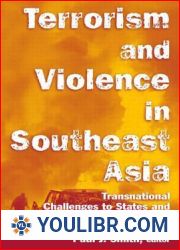


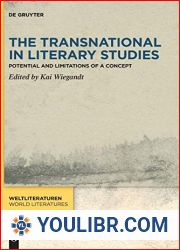
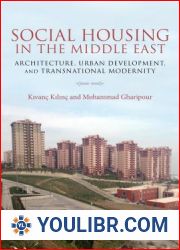
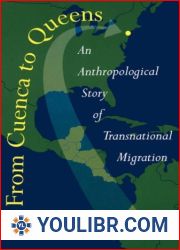
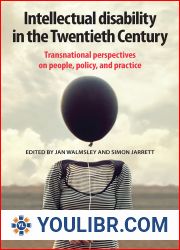
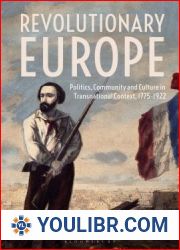
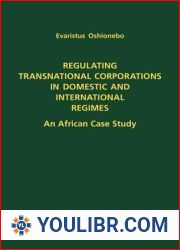

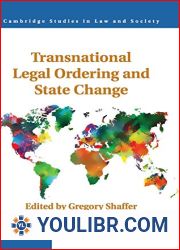

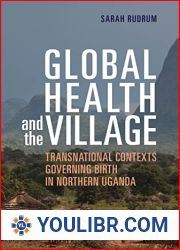









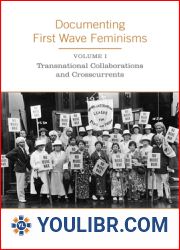

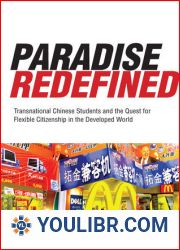

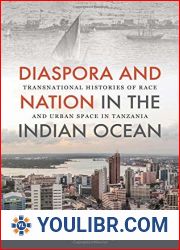


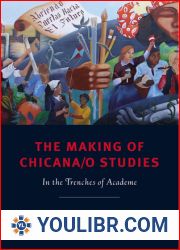

![Comparative and Transnational History by Heinz-Gerhard Haupt. (Berghahn Books,2010) [Hardcover] Comparative and Transnational History by Heinz-Gerhard Haupt. (Berghahn Books,2010) [Hardcover]](https://youlibr.com/img/6/605078_oc.jpg)


